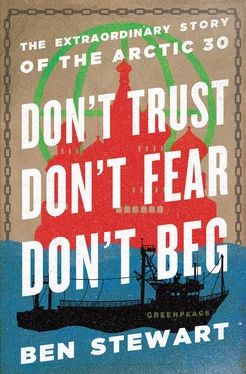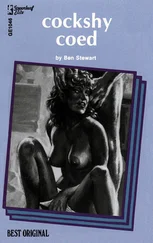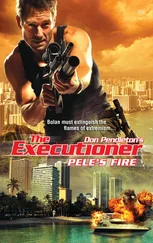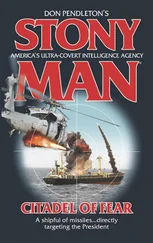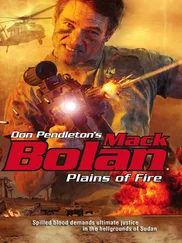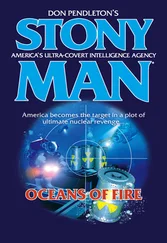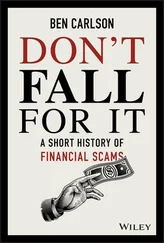I look at the court and I see three chairs, and there’s only one judge. There’s only one judge though, so it must not be too important. The press gallery is huge. Once again please, please, please, please grant me bail.
Universe, this is not fair and I’m in this joint. I need to be with my family, I need to be with my friends. We will see what happens I guess.
The judge addresses the court in Russian. Colin can see the moment of truth is coming. The judge stands up and leaves the courtroom, the audio on the link cuts out. All he can see is an empty high-backed black leather chair behind a bench.
The judge has been away for some time now so he’s thinking hard or shagging the clerk of the court on the desk in there. I wouldn’t put it past him. At least the courthouse looks clean and not like the last one.
The judge returns. He settles into the chair, lifts a sheet of paper and begins reading. He stops speaking and lays the paper on the desk. In Colin’s ear the translation catches up.
I’m free.
Despite the ruling of the ITLOS court, the Kremlin is still refusing to allow the crew to go home. The four Russians are allowed to be with their families in Moscow, but the others must stay in St Petersburg. Increasingly it feels like being stuck in an airport departure lounge where the planes never leave.
The biggest complaint from the crew is that they have to share rooms at the Peterville. After months in jail they want to choose when to have company and when to be alone, so everyone moves across town to the Park Inn Pribaltiyskaya, an ugly brown Brezhnev-era monolith that was built for a Soviet conference in the seventies.
Three weeks after their release they’re still confined to the city. Every few days they’re summoned to the Investigative Committee, where senior officers grill them with the same questions. Who was in the boat? Who was in charge? What part did you play in the terrorist attack on the oil platform?
Some of the thirty are becoming settled here, enjoying their freedom and each other’s company, piling into a hotel room in the evening to party until morning. But others are on the periphery of the group, factions are forming, the pressure of confinement and the uncertainty around the legal case means low-level bickering sometimes breaks into outright arguments.
And that question of blame is still raw. A couple of guys still believe Frank and Dima didn’t do enough to warn them how heavy things could get. Sometimes in the bar there’s a table of former prisoners chatting loudly and downing beers, with Frank sat alone in a corner of the room, reading a book.
The pressure is building. In his diary Frank describes the atmosphere as ‘draining’. He says the ‘continued predicament of uncertainty and group squabbles have led to a feeling of despondency’. He talks of ‘meals, meetings and mini-meltdowns’.
In the long legal summits between the lawyers and the thirty, the tension is thick. In one meeting Dima says, ‘I hope we’re still in Russia for the Olympics. If that happens we’ll make a huge stink out of it.’ And Pete throws his head back and cries, ‘Jesus, Dima. Are you fucking insane ?’
Frank Hewetson’s diary
10th December
So so very good to finally grab both Nell + Joe in my arms on Friday night at the bottom of the stairwell. I was in floods of tears. My lovely boy + girl. I missed them so so much. So good to sit down all 4 of us and argue, giggle, snort with laughter and see Nina go the whole way from giggling to crying as she does at emotional times. So lovely to be back with my loved ones. So good.
Hopes are turning towards an Amnesty Bill passing through the Duma – the lower house of Russia’s parliament. The amnesty is scheduled to coincide with the twentieth anniversary of the adoption of Russia’s constitution in December 1993. The Bill is set to free many thousands of prisoners across Russia, but at its first reading in the Duma it becomes clear that in its current form it won’t apply to the Arctic 30. The text covers hooliganism – the crime the crew are charged with – but only for people already convicted. Pussy Riot will qualify, but not Greenpeace. Powerful figures in the Duma indicate their support for a broader amnesty, but ultimately it’s for Putin to decide if the saga will now end. [116] http://www.greenpeace.org/international/en/press/releases/Greenpeace-Current-draft-of-Russian-amnesty-does-not-include-Arctic-30/
One week before Christmas Day the Amnesty Bill comes back before the Russian parliament for a final vote. At the last minute an amendment is inserted to include not only those convicted of hooliganism, but also those accused of it. [117] http://www.greenpeace.org/international/en/press/releases/Russian-parliament-votes-for-amnesty-for-Arctic-30/
As things stand, the Arctic 30 are now included. At 4 p.m. Moscow time there’s a vote in the Duma. About half the activists are clustered around tables in the hotel bar, watching the debate on computer screens. When the result comes through, it’s resounding. The Amnesty Bill is passed. But the moment feels oddly anticlimactic.
Silence. Somebody sniffs. A few of them take sips of beer but nobody proposes a toast. This is not how anybody imagined it would be during the darkest days of their ordeal. A journalist approaches them. He raises a video camera, but there’s nothing to film. He asks if they can contrive a celebration, and Sini – always keen to accommodate people – fakes a hug with Phil and breaks into an unconvincing smile. Then she sits down and shakes her head.
‘They can put that fucking amnesty up their arse,’ she mutters. ‘I don’t want to have an amnesty from Mr Putin. He was in the wrong all along. I didn’t do anything I need to be amnestied for. He wants us to say thank you for his forgiveness. No way.’
The following day Putin holds his annual press conference in Moscow. It’s a national event. Two thousand journalists are invited; the questions have already been decided. He announces that Mikhail Khodorkovsky, the most high-profile political prisoner in Russia, will also be freed. [118] http://www.telegraph.co.uk/news/worldnews/vladimir-putin/10527779/Vladimir-Putin-pardons-oil-tycoon-Mikhail-Khodorkovsky-in-Amnesty.html
Then he confirms the Arctic 30 will be amnestied. But he says their ordeal should serve as a lesson. Putin says he suspects the Greenpeace protest at the oil platform was an ‘attempt at blackmail and extortion, or they were carrying out somebody’s order to stop our work’. [119] http://www.theguardian.com/world/2013/dec/19/russia-never-worked-edward-snowden-nsa-putin
‘Screw you,’ Dima shouts at the screen. ‘You don’t owe me an amnesty, you owe me an apology.’
Khodorkovsky, Pussy Riot and the Arctic 30. The Kremlin is taking out the trash before the Winter Olympics in Sochi in six weeks. None of the activists is happy that their freedom comes wrapped in Putin’s magnanimity, but they know they won’t get home unless they take the amnesty. It’s the only way to avoid a court case on trumped-up charges, then years in a Russian prison.
But Denis Sinyakov can’t do it. He knows some of the leading figures in the Russian opposition movement. He was photographing Pussy Riot’s protests before they were famous. He says he won’t sign the amnesty. He wants to fight the case in court.
‘I don’t care about Putin,’ he says. ‘This is about my truth. My lawyer says we should go to trial and fight like lions. He says if we accept it we’ll just help the investigators and the authorities to win.’
Denis’s decision is an earthquake. Mads Christensen and his team have been told it’s all or nothing – either thirty people take the amnesty or the politics of the moment get complicated. The campaigners think the others might not be allowed to leave Russia if anyone refuses Putin’s offer. A rumour goes around that ten people have already been granted the amnesty but that the process has now been halted. People are saying the investigators aren’t signing off amnesties for the others because of Denis. But when Denis and his lawyer investigate, they find that’s not true.
Читать дальше
